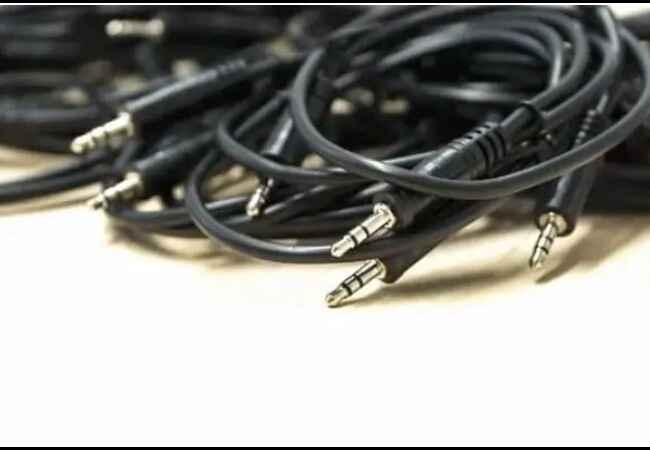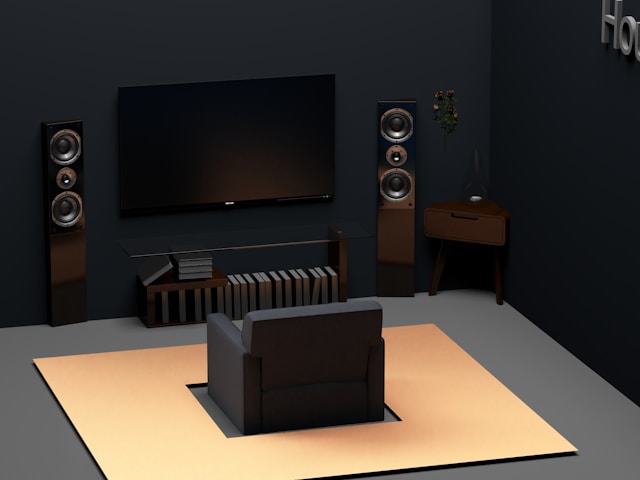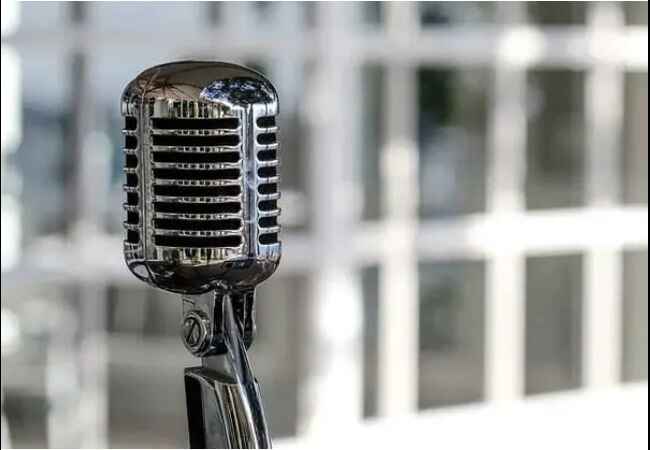
Welcome to my blog.
If you are a passionate gamer and want the best possible gaming experience without compromising on audio quality, you’re at the right place.
This blog post will definitely help you with your buying journey, and after reading this blog post, you will gain enough knowledge to make the right decision while shopping for your gaming headset.
In this blog post, I have discussed critical factors like sound quality, comfort, durability, and many other important factors that gamers generally ignore when making their purchase.
I have also shared my personal experience with gaming headsets and my pro tips to help you, which would help save your hard-earned money.
Whether you are a beginner or a pro, a PC, a mobile, a console lover, or any other type of gamer, this blog post will prove helpful to you.
Before starting to discuss the important factors, Here’s a pro tip:
When choosing your gaming headset, it’s important to find a perfect balance between the audio quality/tech features and overall ergonomics so you feel comfortable using it during long hours of gaming without compromising on sound quality.
So, let’s dive in.
Key Things to Consider When Choosing Your Gaming Headset
Remember, a perfect gaming headset is not always the most expensive one with a lot of features. A gaming headset that suits your specific needs and budget is the right one for you.
Let’s now discuss the things to consider before purchasing your gaming headset.
Sound Quality

When it comes to audio quality, it’s highly subjective.
However, gaming headset brands have made significant improvements in recent years, refining their audio profiles to deliver cleaner, more immersive sound. Here are some key points to consider:
- Improvements in Audio Quality: Manufacturers have worked on refining audio profiles to reduce muddy bass, muffled sound, and harsh treble. Instead, they focus on delivering deeper, cleaner bass and smoother high-end frequencies.
- Managing Expectations: It’s essential to manage expectations when it comes to audio quality, especially with cheaper headsets. While some budget-friendly options like the BlackShark V2X offer decent audio, they may not deliver the best gaming experience compared to higher-end models. Personal preferences also play a significant role, with some users preferring a brighter presentation, while others lean towards a warmer sound signature.
- Research and Reviews: Before purchasing a headset, it’s crucial to do thorough research and read reviews from trusted sources. Websites like Rtings.com and Sound Guys provide valuable subjective data on audio products, helping you make informed decisions. While trying before buying isn’t always possible, carefully analyzing reviews and marketing materials can give you a good understanding of what to expect from a product.
Selecting the right gaming headset involves considering various factors, including audio quality, microphone functionality, comfort, and compatibility. By researching thoroughly and understanding your preferences, you can make a responsible purchase that meets your gaming needs.
When you’re checking gaming headsets for sound quality, pay close attention to these factors:
- Driver Size and Type: Bigger drivers usually give you a richer, stronger sound. But the type matters, too. Dynamic drivers are common and provide great bass, while planar magnetic drivers deliver precise sound across all frequencies.
- Frequency Response: This tells you the range of sounds a headset can play. Look for headphones with a wide frequency response to catch all the details, from deep bass to high-pitched enemy footsteps.
- Surround Sound: Many gaming headsets have virtual surround sound techs like Dolby Atmos or DTS: X. These create a 3D audio feel, making it easier to tell where in-game sounds are coming from.
Comfort for Long Gaming Sessions

The convenience and comfort become crucial, especially when using your headset for extended gaming marathons.
You don’t want to struggle with features and functions, especially when it means sacrificing comfort.
Let’s dive into some key things to consider, starting with ear cups.
The ear cups are important because they’re what your ears are resting against. The material they’re made of, like soft fabric or pleather, affects comfort and breathability.
Pleather is great for sealing in sound and giving a good bass response, but it can wear out faster. Some headsets avoid pleather altogether for better heat management.
The density and thickness of the foam in the ear pads also matter a lot. Thicker foam can be more comfortable, but it’s hard to tell just by looking at marketing materials.
Oval ear cups are generally better because they fit different ear sizes well. Round ear cups can work too, but they might not seal as well. Maxwell headsets have a cool mix of round and oval shapes for comfort and seal.
Removable ear cups are handy because you can replace them if they wear out. Third-party options can also improve comfort. Headbands are important too; they help balance the weight of the headset. Look for ones with separate size adjustments for a better fit.
Swivel joints might seem cool, but they’re not always comfy. They can put too much pressure on your neck. Weight isn’t everything; a heavy headset can still be comfortable if it’s well-balanced. Clamping force is a big deal too. It’s the pressure the headset puts on your head. Reviews are your best bet for figuring out if a headset’s clamping force will work for you.
Cable noise is another thing to watch out for. Braided cables can cause annoying sounds, so opt for rubberized ones if you can. Wireless headsets can solve this problem altogether.
Overall, comfort is key. Take your time to find a headset that feels good on your head, even if it means doing a bit of research and trying out a few options.
Uncomfortable headphones can lead to distractions, discomfort, and even ear fatigue. When assessing gaming headphone comfort, these factors become important to note:
- Ear Cushions: Choose headphones with memory foam or plush ear cushions. These materials adjust per your ear’s shape, providing comfort and a tight seal blocking external noise.
- Headband Design: A well-padded, adjustable headband evenly distributes the headphone’s weight, reducing pressure on your head’s top.
- Weight: Generally, lighter headphones offer more comfort during long gaming sessions. Heavier headphones can cause discomfort and strain.
- Breathability: In a warm gaming environment, choose headphones made from breathable materials to prevent your ears from getting sweaty and uncomfortable.
Wired vs. Wireless

Let’s talk about the choice between wireless and wired gaming headsets.
I personally like wireless ones because they offer convenience and great audio quality. Many premium wireless headsets also come with Bluetooth, which is handy. But there are some things to consider.
Firstly, wireless headsets tend to be pricier, and you have to keep them charged up. Some models, like those from Turtle Beach or SteelSeries, have swappable batteries to reduce downtime.
However, battery life claims on the box can be misleading, so it’s best to check reviews for real-world battery performance.
Another thing to look into is whether a wireless headset can also be used with a cable. Some models can be connected via USB for wired use, while others are wireless-only, which might be a drawback for some users. If you do go wireless, you might encounter interference issues, but a quick fix is to plug the dongle into the front of your PC instead of the back.
On the other hand, wired headsets still have a lot going for them. They’re usually more affordable and often have better microphones because of the wired connection. Plus, the audio quality is typically cleaner than wireless.
However, the cable length is something to consider. Most wired headsets come with a standard cable length, but it’s essential to check if it’s long enough for your setup or if it’s removable so you can swap it out if needed.
You can choose wired or wireless gaming headphones as per your needs. Wired ones often have lower latency, great for competitive gaming, while wireless ones offer better portability and convenience.
Some wireless headphones also include low-latency tech to reduce sound delay; however, they come with a hefty price tag.
The decision between wired and wireless headphones often depends on your gaming style and preferences. Let’s take a closer look at both choices:
Wired Headphones:
- Low Latency: Wired headphones excel with low latency, perfect for competitive gaming where quick reactions matter.
- No Battery Worries: Wired headphones ensure uninterrupted gaming without worrying about battery life.
- Reliable Connection: Wired headphones offer a dependable and interference-free connection.
Wireless Headphones:
- Freedom of Movement: Wireless headphones free you from being tied to your gaming device, perk console gamers especially appreciate.
- Convenience: Wireless headphones eliminate tangled cables and offer a hassle-free experience, ideal for casual gaming.
- Enhanced Features: Certain wireless gaming headphones boast customizable sound profiles and advanced technologies like surround sound.
Consider your gaming setup and preferences when deciding between wired and wireless headphones. Competitive gamers often prefer wired headphones for reliability, while casual gamers may enjoy the convenience of wireless options.
Stereo vs Surround

There is always an ongoing debate going on when it comes to choosing between stereo and surround sound in a gaming headset.
There is a misconception that surround sound is necessary for knowing the exact position of your opponent, the direction cues, and how far your opponent is from you.
However, that’s not the case; a stereo headset can give you good clues about where sounds are exactly coming from.
For example, the SteelSeries Arctis Pro Wireless provides better directionality and distance cues in games like Battlefield and CS: GO compared to the HyperX Cloud 3 Wireless with surround sound enabled.
Sometimes, surround sound can make it hard to hear important details in the audio, so stereo is usually suited for most games.
Surround sound works well for games without crucial audio details, like strategy or single-player games, where spatial awareness matters more than precise sound quality.
For driving games, I experienced that surround sound can create a larger and more expansive audio environment, especially with Dolby Atmos, which some Corsair headsets have.
Usually, surround sound can be useful, but when it comes to competitive gaming, surround sound might not be the best choice, and I prefer stereo sound.
Build Quality

The build quality is a very important factor to consider for better long-term usage and reliability.
I have also observed a common misconception here, which is that a plastic gaming headset is not durable and of bad quality.
However, that’s not always the case, hard plastic is also good and helps make your headset lighter and more flexible.
I would suggest you research well and read reviews to avoid common problems such as a shaky microphone, worn-out cables, or ear cups that may fall apart.
Don’t just depend on first impressions from reviews; it’s better to check the long-term reviews to see how well the headset holds up over time.
Sometimes, even if a headset is from a good brand, there can still be problems with some batches.
Keep in mind that every brand can have quality control issues, so it’s a good idea to understand what you’re getting before you make a purchase.
Here are some things to consider when evaluating the build quality and durability:
- Materials: Choose headphones made from high-quality materials like metal or hard plastic. Avoid headphones with fragile components that can easily break.
- Cable Quality: Headphones with cables wrapped in braided or reinforced material are less likely to get tangled or damaged over time. Detachable cables make storage and replacement easier.
- Hinge and Swivel Points: If the headphones have moving parts like swiveling ear cups or a foldable design, make sure these parts are sturdy and can handle repeated use.
- Water and Sweat Resistance: Some gaming headphones are designed to resist water or sweat, which can be a bonus if you sweat during intense gaming sessions.
Closed vs Open Back

There is also a debate going on between closed and open-back gaming headsets, let’s clear it now.
The majority of gaming headsets available on the market are closed-back ones, which ensures that there is no sound leakage.
This is good for privacy and helps you focus on the game without outside distractions.
Closed-back headsets also give you direct audio, which is great for competitive gaming because you hear only the game sounds, not the noises around you.
On the other hand, open-back headsets have their advantages too.
They’re more breathable and give you a natural expansion of the sound stage. This means you can hear things not just nearby but also from a little farther away, without needing any special surround sound effects.
With an open-back design, you can still detect sound cues and their directions in the game.
However, they leak sound in both directions, so they’re not good for privacy.
You can also easily hear everything happening around you, which can be distracting, especially in noisy environments.
I personally like using open headsets for games like Battlefield because of the large sound stage, which helps me pinpoint where certain sounds are coming from. But for games like CS2, I prefer closed-back headsets to block out distractions.
Microphone Quality

When it comes to microphone details and functions, gaming headsets have a unique space. They’re not just an accessory; they define the headset experience. Here’s what to consider:
- Removability and Muting: Check if the microphone is removable or if it has a flip-to-mute feature. Some headsets, like those from SteelSeries, offer retractable mics or dedicated mute buttons. Having a removable mic is handy if you want to use the headset in public without looking overly “gamer.”
- Microphone Quality: Most gaming headsets have decent microphones that ensure others can hear you clearly. However, the sound quality can vary depending on the application you’re using. Compression levels differ between platforms like Discord, Skype, or Google Meet, affecting how your voice is heard. While you might notice differences in a controlled environment, in real gaming situations, factors like background noise and compression become more important.
- Side Tone Quality: Side tone allows you to hear yourself while wearing the headset, which is crucial for closed-back designs. Make sure the side tone quality meets your needs, and check if you can adjust the gain settings not only in the headset’s software but also in your computer’s settings.
- Additional Options: Consider aftermarket solutions like Antlion’s ModMic, which can convert your favorite headphones into headset-style setups.
Compatibility with Your Gaming Platform

It’s essential to get a headset that is compatible with your gaming devices like PC, Xbox, PlayStation, Nintendo, and so on.
If you’re using a headset with a 3.5 mm jack, it should work with any platform that accepts analog connections. However, things get a bit tricky when it comes to wireless or USB headsets.
The good news is that many gaming headsets come in variations designed for specific platforms like PlayStation 5 or Xbox.
Few headsets, like the Arctis 7X from SteelSeries, even support multiple platforms, although they might be marketed primarily for one.
So, when you see a headset advertised as compatible with PlayStation, Xbox, and so on, make sure it includes the features you need, especially if you’re looking for wireless capabilities.
Don’t just assume it will work seamlessly across all platforms. In my opinion, it’s essential to check the specifications carefully to ensure it meets your requirements.
To make sure your chosen gaming headphones will work with your favorite system, consider these compatibility factors:
- Wired or Wireless: Check if the headphones use USB, regular audio jacks (3.5mm), or wireless options like Bluetooth. Make sure they match the ports on your gaming device.
- Console Compatibility: If you mainly play games on a console (like Xbox or PlayStation), make sure the headphones are designed to work smoothly with your specific console. Some headphones even have extra features for console gaming.
- PC Compatibility: If you’re a PC gamer, look for headphones compatible with your computer’s operating system (like Windows, macOS, or Linux) and any gaming software or platforms you use, such as Steam or Discord.
- Mobile Device Compatibility: If you plan to use your headphones with a smartphone or tablet, make sure they have the right connectivity options (Bluetooth/3.5 mm audio jack) and work well with your mobile device’s operating system.
Customization and Extra Features

Customization and extra features can enhance your gaming experience, adding a personal touch to your setup.
Look for headphones with options like:
- Sound Profiles: Some gaming headphones have preset sound profiles for different game genres, like FPS, RPG, or music. These profiles can optimize audio for specific gaming situations.
- RGB Lighting: If aesthetics matter to you, consider headphones with customizable RGB lighting that matches your gaming setup’s color scheme.
- Programmable Buttons: Headphones with programmable buttons allow you to assign specific functions, such as adjusting volume or muting the microphone, for quick and easy access.
- Customizable EQ: Seek out headphones with built-in equalizer settings or companion software so you can fine-tune the audio to your liking.
- Active Noise Cancellation (ANC): Some gaming headphones feature ANC technology that blocks external noise, creating a more immersive gaming experience.
These features can give your headphones a unique flair and cater to your preferences, enhancing overall gaming enjoyment.
Battery Life (For Wireless Headphones)

If you’re considering wireless headphones, it’s crucial to think about their battery life.
A longer-lasting battery ensures uninterrupted gaming sessions. Check if the headphones support fast charging to reduce downtime.
While wireless gaming headphones offer convenience, their battery life can vary.
To avoid the frustration of running out of power during an intense gaming session, consider the following battery-related factors:
- Battery Life: Look at the advertised gaming and standby modes of battery life. A longer battery life means fewer interruptions for recharging.
- Charging Time: Some wireless headphones offer quick charging, allowing you to return to gaming quickly after a short charging break.
- Battery Indicator: When checking the battery level, choose headphones with clear battery level indicators that let you keep an eye on the remaining battery life.
- Charging Options: Consider whether the headphones use standard USB or proprietary connectors. Proprietary connectors limit your charging options.
Price and Value

Gaming headphones come at various price points, so it’s important to consider your budget.
Premium headphones may offer advanced features, while budget-friendly options can still provide good performance.
It becomes important to find the right balance between your gaming needs and your budget to get the best value for your money.
I would suggest to consider the following pricing factors:
- Budget-Friendly Options: Entry-level gaming headphones can offer decent audio quality and comfort without breaking the bank. These are suitable for casual gamers or those on a tight budget.
- Mid-Range Models: Mid-range gaming headphones provide a good mix of performance and features. They often balance affordability and sound quality, appealing to gamers looking for great audio without straining their finances.
- Premium Picks: If you’re a dedicated gamer seeking the best audio quality, comfort, and advanced features, premium gaming headphones may be worth the investment. These models typically come with high-quality sound drivers, advanced customization options, and exceptional build quality.
- Consider Long-Term Value: While examining the price tag, consider your investment’s lasting value. More expensive headphones with superior build quality may last longer, ultimately offering a better overall value.
Reviews and Recommendations

As we are already aware, ‘prevention is better than cure.’
Exploring reviews from experts and fellow gamers before making your final purchase decision is important.
These reviews provide valuable insights into the performance, comfort, and durability of the headphones you’re considering.
Additionally, seek recommendations from friends or tap into the knowledge of online gaming communities.
Reviews and recommendations from trusted sources are invaluable when choosing gaming headphones.
Here’s how to make the most of these resources:
- Expert Reviews: Look for reviews on reputable tech and gaming websites. These evaluations often offer in-depth analysis, sound quality assessments, and comparisons with other headphone models.
- User Reviews: User reviews on online marketplaces and gaming forums provide real-world perspectives on the headphones’ performance and comfort. Pay attention to common themes and feedback from users with similar preferences.
- Ask for Recommendations: If you’re part of gaming communities or forums, don’t hesitate to ask for recommendations based on your gaming preferences, platform, and budget. Gamers often share their experiences and can guide you toward the best choice for your needs.
- Demo and Test: Try out the headphones in person at electronics stores or gaming events whenever possible. This hands-on experience can give you firsthand insights into their comfort and sound quality.
Conclusion
Your choice of gaming headphones can significantly impact your gaming experience.
Consider factors like sound quality, comfort, and connectivity to find the perfect pair. Quality headphones elevate your gaming adventures, whether you’re a competitive gamer or a casual player.
In the vast world of gaming headphones, every gamer has a pair catering to sound quality, comfort, customization, or value.
Explore the options to ensure your headphones meet your gaming needs and enhance enjoyment. With our detailed buying guide for gaming headphones, you’ll immerse yourself in your virtual worlds and conquer epic quests.
Happy Gaming 🙂
Frequently Asked Questions
I mainly play single-player games. Is surround sound necessary for a good experience?
Not necessarily. Stereo headsets can provide excellent directional cues and immersive audio for most games. Surround sound might be beneficial for specific titles, but prioritize comfort and sound quality for your needs.
Can I use a mobile gaming headset on my PC?
Often, yes! Many headsets offer multiple connection options like Bluetooth or 3.5mm jack, making them compatible with different devices. Check the specifications carefully for confirmation.
I plan to upgrade my PC soon. Should I buy a headset specifically for PC now, or will it work with future consoles too?
Opt for a versatile headset with standard connections like USB or 3.5mm jack. These tend to be more future-proof across different platforms.
Do open-back headsets leak a lot of sound? Would they bother others in the same room?
Yes, open-back designs leak sound and might disturb others nearby. Closed-back headsets isolate sound better, making them ideal for shared spaces.
I mostly use my headset for voice chat. What features are crucial for clear communication?
Prioritize a microphone with noise cancellation and a flexible arm for optimal positioning. Detachable mics offer versatility if you use the headset for other purposes.
I have a small head. Will most headsets fit comfortably?
Look for headsets with adjustable headbands and oval ear cups for better fit across different head sizes. Reading reviews about comfort for smaller heads can also be helpful.
Is wireless worth the extra cost compared to wired headsets?
It depends on your priorities. Wireless offers freedom and convenience, but wired headsets sometimes have better audio quality and lower latency. Consider your budget and gaming style.
Do gaming headsets work well for listening to music too, or should I have separate headphones?
Some gaming headsets excel in both gaming and music listening. Look for models with a neutral sound profile and customizable EQ for versatility. However, dedicated music headphones might offer superior audio quality for audiophiles.
Also Read….
- Why Are Gaming Headsets So Big? [13 Reasons]
- Are Gaming Headphones Good for Calls [2024]
- How Do Gaming Headsets Work? [2024]
- How To Set Up Gaming Headphones Like a Pro
- Virtual Surround Sound In Gaming Headphones Explained
- Gaming Headsets Vs Regular Headsets: Which Should You Choose?
- How to Clean and Maintain Your Gaming Headset [2024]
- How To Fix Common Problems With Gaming Headphones
- How To Improve Audio Quality on Gaming Headset [2024]
- How to Choose Best Gaming Headset for Streaming [2024]
Hi, I’m Vishal, founder of Gaming Bar, your ultimate hub for gaming and tech gear. I am passionate and dedicated to improving your gaming experience and providing honest reviews about gaming and tech products. You’ll find plenty of honest, unbiased reviews, buying guides, and expert opinions presented in an engaging manner. All I ask is that you share my blog posts and support me.

From where ? I can get it?